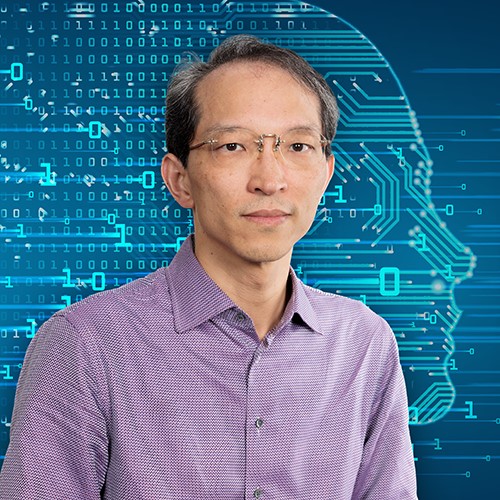Edwin Lo

Edwin Lo
Assistant Professor of Data Science and Director of Undergraduate Studies
Contact:
Edwin Lo’s teaching spans a broad spectrum of fields including data science, physics, and mathematics/statistics. His journey in homeschooling led him to dedicate his time and focus his research on STEM education using big data. Edwin’s introductory data science classes strive to meet students where they are, without sacrificing any rigor and breadth of the curriculum. He believes a solid mathematics foundation is instrumental to the complete development of data scientists and STEM professionals.
Please schedule an appointment using: https://www.calendly.com/
Mathematical foundations in Data Science and Physics/STEM education
Edwin Lo’s teaching spans a broad spectrum of fields including data science, physics, and mathematics/statistics. His journey in homeschooling led him to dedicate his time and focus his research on STEM education using big data. Edwin’s introductory data science classes strive to meet students where they are, without sacrificing any rigor and breadth of the curriculum. He believes a solid mathematics foundation is instrumental to the complete development of data scientists and STEM professionals.
Edwin Lo is spearheading an Artificial Neural Network (ANN)/physics project – Physics.Land. The frontend provides a computational tool for physics problem-solving, while the backend collects usable data needed to train the network. The goal is to create an ANN capable of solving physics problems on its own.
Decades ago, AI was imagined to be an expert system consisting of a vast amount of knowledge, comprehensive databases, and super-efficient algorithms to make informed predictions. The emergence of neural networks, deep learning and big data has completely changed the landscape. AI systems are now expected to learn like children from abundance of real-life data, with iterative trial-and-error cycles.
With this contemporary understanding, Edwin re-examined the anatomy of physics problem-solving. He concludes that intelligent beings when solving a real-life physics problem, they first dissect it into components, and then pick the best physics modules and equations. The network while providing accurate and expeditious computations in nanoseconds, it can learn these important decision-making steps from the humans. Physics.land serves as a bridge for this symbiotic relationship. This is the key to make next generation AI systems thinking like physicists. Imagine Data, the self-aware and sapient robot in Star Trek, being plugged into this ANN, solutions to any problem involving physics will be just a snap of fingers away.
CCAS 1001: First Year Experience
DATS 1001: Data Science for All
DATS 4001: Data Science Capstone
DATS 6101: Introduction to Data Science
DATS 6103: Introduction to Data Mining
DATS 6501: Data Science Capstone
Ph.D., Johns Hopkins University
B.Sc., The Chinese University of Hong Kong

